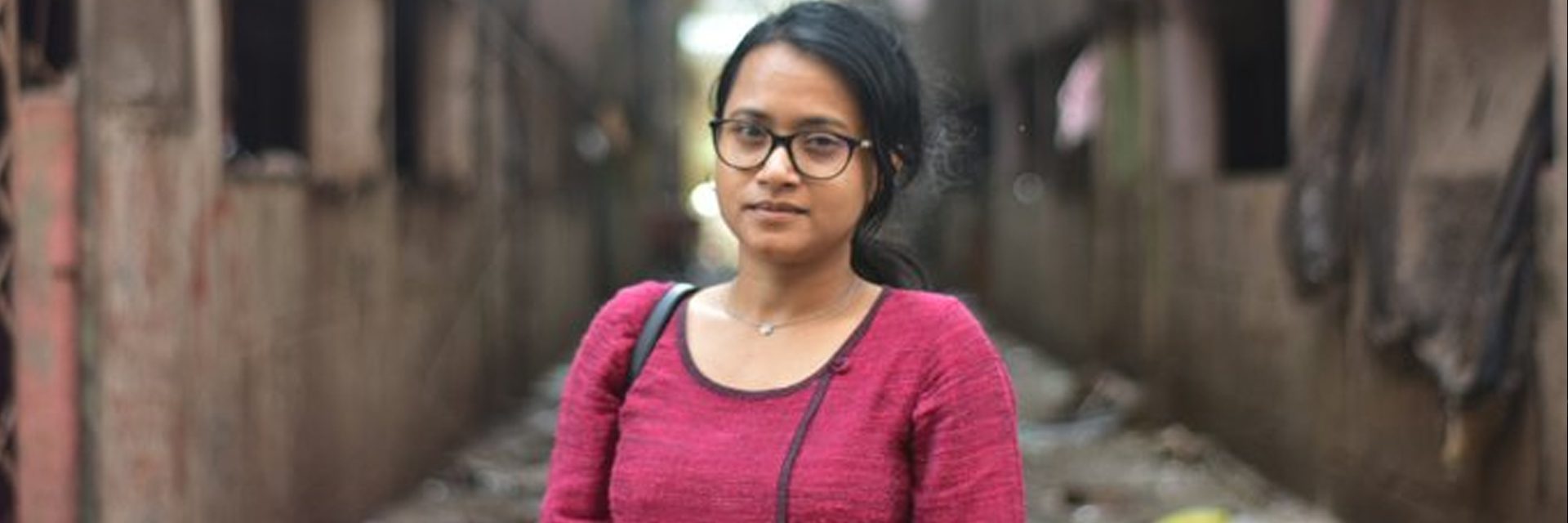(April 19, 2024) In Rourkela, Odisha, was a slum reserved for people with leprosy, a community that nobody wanted to enter. It was a little children’s park that changed its fate, and soon, there were kids coming in from everywhere to play together. In Pimpri Chinchwad, Maharashtra, the Sudarshan Chowk, once a haphazard, unauthorised car park, was transformed into an open space, where people now flock everyday, to do yoga, let their children play and even for small celebrations. A dumpyard in Kohima, Nagaland, became a micro park, which soon became a place where people from nearby colonies now come to meet. What’s more, all this was done in 75 hours, as part of the Placemaking Marathon, conceptualised by Jeenal Sawla, Principal Advisor of the Smart Cities Mission, as India celebrated its 75th year of independence. The community-driven exercise to reimagine and reclaim public spaces would have a sweeping impact.
Thinking differently has always been the core of Jeenal Sawla’s philosophy. After graduating with a degree in architecture, she went to Harvard University for a master’s in urban design, then worked at an architectural firm for two years in the US before realising she wanted something different. She returned to India and went on to join the Ministry of Housing and Urban Affairs, where she is currently an advisor to the Smart Cities Mission. “I hope more of us with access to good universities and global exposure are able to engage in solving societal problems and contribute to nation building” Jeenal tells Global Indian.

Jeenal Sawla
From Bombay to Boston
Growing up in Mumbai, Jeenal’s mother, who did not have the chance to study was keen that her daughter pursued a good education, often joking, “I won’t let you get married until you have a master’s degree.” In her free time, Jeenal would “scribble” in her notebooks, but what she was actually doing was redesigning houses. “I had redesigned a lot of my family’s houses,” she recalls. Architecture seemed like a fairly obvious career choice but instead of more conventional, prestigious schools like JJ College of Architecture, Jeenal went with Kamla Raheja Vidyanidhi Institute for Architecture and Environmental Studies.
It was a niche school that put a different spin on architecture as a subject, shaping Jeenal’s formative views towards her pratice. “We weren’t discussing form and function, Kahn and Corbusier,” she says. “We were thinking of real life problems.” When she was 20, she spent two months walking around and documenting the Dharavi slum. “We were focussed on pressing issues in Bombay, on equity and human-centred design before it became corporatised over the last decade or so.”
The most common step after Kamala Raheja was a master’s in urban planning and Jeenal wanted to explore how economics and politics can influence decision making in this area. She applied to a bunch of urban planning programmes and was admitted to Harvard University.
Journey to Harvard:
Harvard had given her a seat, but funding was a problem. Jeenal wasn’t eligible for many of the bigger scholarships and taking a loan would have meant mortgaging her father’s home and his office, which she could not bring herself to do. “Somehow I was able to cobble together the money and get there for my first year, but I was worried about not being able to afford the second,” she said. Moreover, she received disapproval from her extended family, and heard things like, “Who will marry you if you have all these loans. In fact, during my first week, I was wondering if I should stay there at all.”

However, the Kutchi Jain community to which Jeenal belongs, matches young students with a resident in the country they’re in. “I stayed with a wonderful person, who became like my adopted mother there. When I told her I wanted to go back, she was shocked,” Jeenal recalls. Together, they crowdfunded the tuition fee, raising money from 34 individuals and organisations in India and America, all before the advent of digital platforms. It allowed her to stay on at Harvard, and also, for the very first time, taught her the power of communities. “I’m not religious and don’t think of myself as a Kutchi Jain all the time, but as we become more global and these ties loosen, what will be the future of communities,” she wonders.
Excelling at an Ivy League
Jeenal had been so focussed on raising money, she hadn’t considered what life at Harvard would actually be like. And making it at one of the world’s most prestigious schools is not easy. “You have become used to being the best back home and now, you’re in the middle of all these beautiful minds,” she says. There were insecurities she had never imagined, like speaking English, which she had always done fluently. The format of education was different too, with lots of reading and writing. “I had never written a paper before and I failed the first one I wrote,” Jeenal recalls. “I was so caught up with funds that I had never thought about these things. I hope students now are better prepared with the tools to help themselves, whether that’s meditation or the therapist you have on retainer,” she adds, laughing.
Even so, it was the experience of a lifetime. The urban planning programme was part of the Harvard School of Design, but Jeenal also loved her classes at the Kennedy School, where she took a lot of classes. She also travelled, even making a trip to Palestine’s West Bank, where she saw firsthand the stark realities there, and a summer in Costa Rica, through a classmate at Harvard. There, she worked to set up a the Social Capital Credits (SoCCs) programme on behalf of the Asia Initiative, which incentivises people to take up projects of social good in exchange for redeemable credits. They identified issues from the SoCCs menu, including waste management, and the castration of stray dogs, and collaborated with sponsors, like a food mart that would give out food coupons in return for social credits. Although she had only two months, the communities drove the initiatives forward on their own. “The bee population was reducing so they incentivised beekeeping,” she says.
The 100 Resilient Cities project
After Harvard, Jeenal spent two years as an Urban Planner at a Boston firm, when the city was readying itself for the 2024 Olympics. However, the proposed infrastructure projects resulted in widespread community backlash, and Boston withdrew its bid. So Jeenal worked on campus planning, and in understanding how the university campus and city can benefit mutually from each other. But the job just wasn’t what she wanted. Instead, her interest was piqued by the Rockerfeller Foundation’s 100 Resilient Cities initiative, and joined Dalberg, a strategic partner in the project. So when she was offered a chance to lead a project in India for one year, she took the opportunity. “I had a H-1B for six years so I decided to give it a try. I was to do resilient strategies for Pune and Chennai, which involved everything from transportation to biodiversity, housing and development.”
At the end of that year, Jeenal didn’t want to leave India. So, she reached out to the Municipal Commissioner of Pune, who was known to be very dynamic and leading the Smart Cities Mission, and the government as a platform was just what she needed. She came to Delhi, as part of the Ministry of Housing and Urban Planning, where she has been for the last four years. “It’s my longest employment and I don’t feel jaded or anything,” she says.
The job is what one makes of it, she remarks. “The bosses I have here have really shaped my experiences – I have had two and both have been progressive, given me a lot of space and trust to create and drive project with a significant amount of independence and creative space.”

Contributing to India
“I have been told that I should pick a lane,” Jeenal admits, “But I don’t really want to do that.” The Smart Cities Mission, however, is sector agnostic, and develops projects according to what a particular city needs. “There is always a requirement for deep expertise but if you’re a transportation expert you’re only going to think about transportation.”
The team is focussed on project monitoring in 100 cities, by integrating data and technology with services and infrastructure to solve urban issues. “We are trying to make things more systematically and improve data ecosystems instead of doing one-off data projects,” Jeenal says. Also, these were the early days of Covid, when migrant workers were walking back home and they were looking at how to think about this from a tech and data standpoint. Besides, with no cars on the streets, over 100 cities were re-imagining their public spaces, setting up cycle lanes and parklets.
“We started two programmes called the Streets4People and Cycles4Change,” she said, “As well as “Nurturing Neighbourhoods and the Placemaking Marathon.” They began with around 50 cities in different phases, working with stakeholders to reimagine certain parts of various cities. There was also a campaign on how to improve cities from thel ens of young children and caregivers. This year, Jeenal looks to ground a pilot program on the ‘care economy’ in select urban poor communities. “Unpaid care work is the biggest reason holding back our female workforce participation rate. For women to be economically productive, we need to improve access to quality, affordable, and accessible care services and infrastructure.”
“ln a country like India, with some of the highest urban densities, community public spaces serve as extensions of homes,” says Jeenal. “They build social cohesion in an increasingly isolated world and also create opportunities for healthy and active living – which cannot be underestimated given the steep rise in lifestyle-related diseases in India. lt is important that as governments, we reduce our over-emphasis on regulating private spaces and invest more in creating public goods.”
Follow Jeenal Sawla on LinkedIn.




Impressive and inspiring.